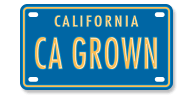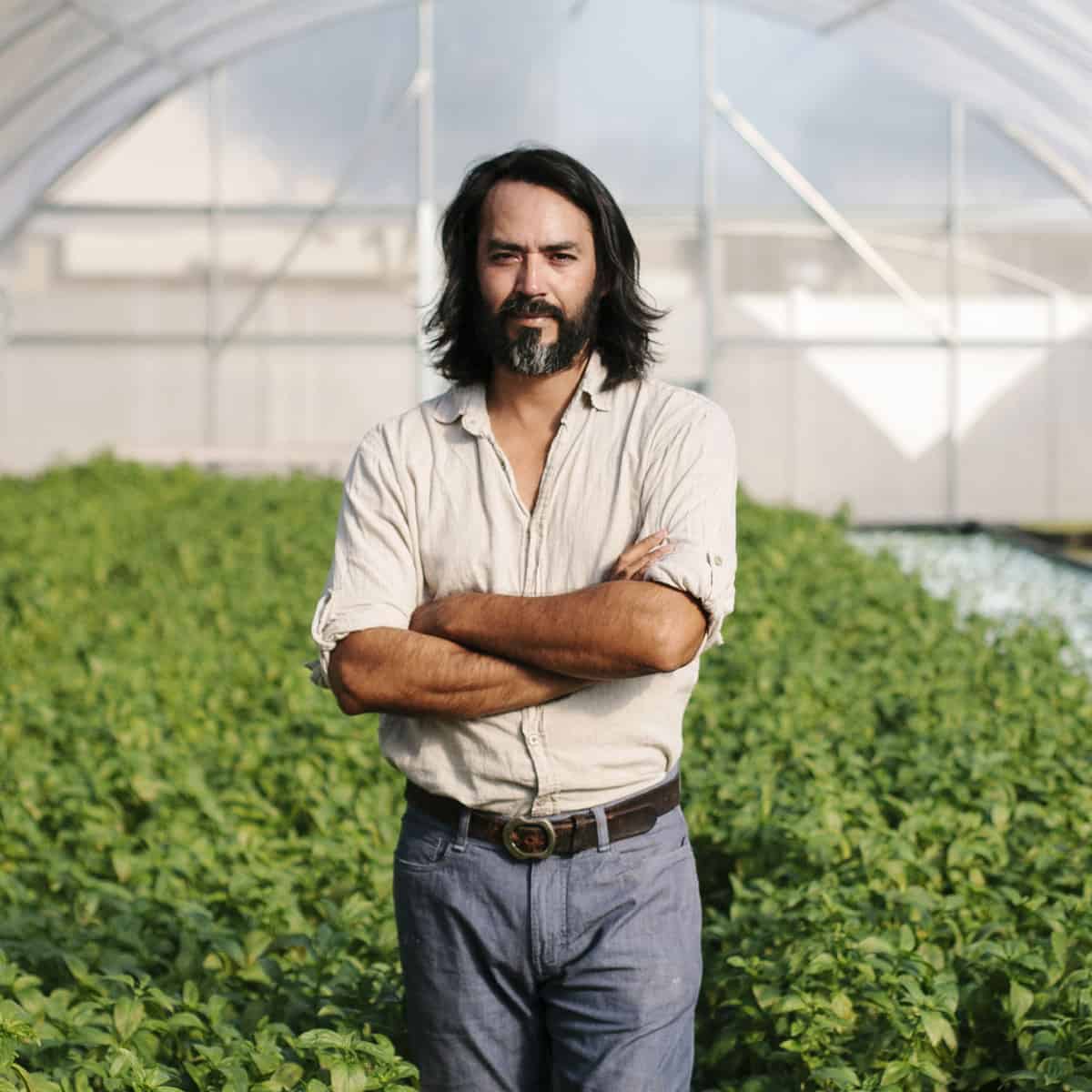Meet a Farmer: Edgar Hercila of Civitas Organics
In honor of Veteran’s Day we spoke to Edgar Hercila, military veteran and CEO of Civitas Organics. As a first-generation American and urban farmer, Edgar proudly served his country overseas and has continued to serve in a different way – through farming! Find out why he’s so passionate about growing farmers and how his military training has helped him overcome many obstacles.
CA GROWN: Tell me about your time in the military and your path to farming.
Edgar: My farming journey began when I was deployed to Iraq. It happened pretty quick, I went to basic training and I was deployed 23 weeks after I enlisted. While I was there, I was tasked with doing a lot of agricultural development and the overall rebuilding of infrastructure of everything from roads to farmer’s markets to schools and more. I was part of a small civil affairs team and a large part of what we focused on was agricultural sustainability and that’s how I got to know how important agriculture is. After my deployment, I came back and it was a natural transition to continue farming. When I got back, I got connected with an organization called the Farmer-Veteran Coalition who helps transition people out of the military and into a career in agriculture. That really helped foster the path I’m on right now to provide food on a small scale through urban farming.
CA GROWN: Tell me about Teaching Gardens and how the American Heart Association adopted that program.
Edgar: A close friend of mine started the Teaching Gardens, a nonprofit that helps fight against childhood obesity, with her friend, a principal of an elementary school here in Inglewood. They had a mutual friend who was the director of the Farmer Veteran Coalition and they were doing private garden events and I went to their second event. That was the segue to what I’m doing now, but it was interesting because it was new to them and they didn’t know how to sustain it. They asked me to come and figure out what they were doing with the gardens. So I went out there and wrote them a report on what to do once the garden is grown and it bloomed from there. They saw how successful this was and decided to adopt it on a national scale.
CA GROWN: What does a typical day look like for you?
Edgar: It’s always waking up in the morning and walking the furrows. Like any other farmer, you have to know what the condition of your plants are. So I walk them every morning and see how the plants are faring and make sure they’re healthy. Depending on what day it is, I’ll either be seeding or planting or harvesting. I just introduced fish into the system, so I’m folding it over to a closed loop, eco-balanced symbiotic system where the fish will now be providing a lot more of the nutrients than the organic nutrients that I was using. So, I’m actually now feeding fish every morning.
CA GROWN: What is your favorite part about your job?
Edgar: There’s a lot of good parts to my job – everything from a general sense of joy to pure happiness. Everyone has their challenges when they get into farming, but mine is very unique so I have a very different sense of appreciation for what I do. To go from someone that was very effective in the military and destroying things to someone who is now cultivating, that’s a huge turnaround from where I was. But there is no one thing I love most, I just love the overall process and outcome that comes with farming.
CA GROWN: How difficult of a transition was it to go from being in the military to being a farmer?
Edgar: Personally, it’s hard to generalize what it’s like for any vet to transition back to civilian life. For me, I was on the tail end of the war during my deployment and it was a very challenging thing for me to come back. When I left, I was a lot older than your traditional soldier or marine. I was 32 when I went into the service and I was engaged, owned a home and owned a business. When I came back, I didn’t have any of those things anymore. That homeless vet stereotype, that’s who I was. And it took me about two years after I resettled and figured out what my place was in the world and how I could continue moving forward and finding a place for myself. It was a challenge, but I got through it.
CA GROWN: Why did you enlist?
Edgar: I’m a first-generation American. My dad came to this country as a bracero and came here during the 50s to work and he earned his citizenship. I’m very aware of where I could have ended up had my dad not made that adventure into America and I’m very grateful that he did and I’m very grateful for the country that we have. Regardless of what your position was on the wars, I believe it’s our patriotic duty to support the government and our country. That’s how I felt I could show my gratitude for this country, so I enlisted.
CA GROWN: How do you give back to the community?
Edgar: That’s where I’m actually on track right now. I just had the assistant dean to North Carolina University come out to visit and we talked about getting some interns out here on the farm and exposing them to urban agriculture. My ultimate goal is to grow farmers and that’s my overall passion for what I’m doing now. I’m growing food and there’s a part that I donate to the community and local food banks and next summer, I’ll be doing classes for the people who want to learn how to do this on a small scale for backyard gardening. Overall, I think my purpose is to create farmers. If I can succeed in doing that, I think it serves the community in a much greater sense and that’s really what I’m focused on right now.
CA GROWN: What advice would you give to someone who wants to become a farmer?
Edgar: It’s not for the faint of heart and it’s not cheap either. Ideally, I would of loved to have a more traditional farm, but I’m in Southern California, which is more urban and real estate is expensive. To farm where I am and to do what I’m doing isn’t cheap and that’s something I think you have to be very aware of before you really make that leap into it.
CA GROWN: What are you doing to ensure continued success in the future?
Edgar: I’m expanding where I am right now. I’m looking into other properties right now because the demand I have for what I’m growing is going beyond my capacity for what I’m able to produce at this point.
CA GROWN: As a first generation farmer, why is it important for you to leave a great legacy?
Edgar: I don’t think in terms of legacy. I don’t have any kids and I’m not married. The only thing I can do right now is be in the present and be an example of someone doing good and doing right. I think that’s the best living legacy that I can present and how it carries on beyond me, I have no control over that. I can only create a foundation of what can be and what is proven to work based on what I do. Hopefully, the legacy is carried on by other vets that pick up where I leave off and will continue to move forward. It’s been a difficult challenge to do any kind of farming here in Orange County, especially in Anaheim. What is important is that this is something that can be done and needs to be done and as long as that need and purpose is fulfilled, that’s really all I can hope for. I lost a couple of buddies because they came back and didn’t have anything – they lost the war at home. And it’s tough, but it gives me drive at the same time to continue to serve my country in this way now. It gives me the strength to keep going.
CA GROWN: What are your hobbies or pastimes when you’re not farming?
Edgar: I’m a big baseball fan and I love watching the games. I also try to travel as much as I can when I can in between harvest rotations. I also really try to learn how other people farm. Regardless of whether you’re growing in water or with fish or in soil, we all have the same challenge of creating and sustaining the life of a plant. Any farmer will tell you that you never stop learning, there’s always something new and always a different challenge to overcome. I’m really trying to be as informed as I can in my craft and give myself the opportunity to grow – no pun intended!

